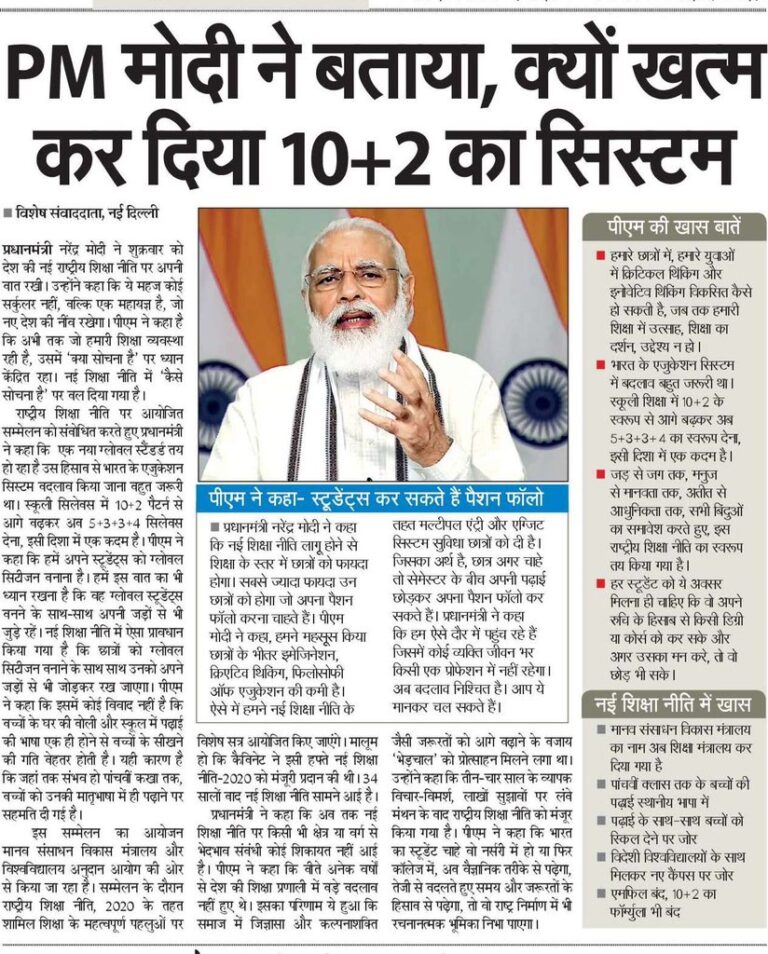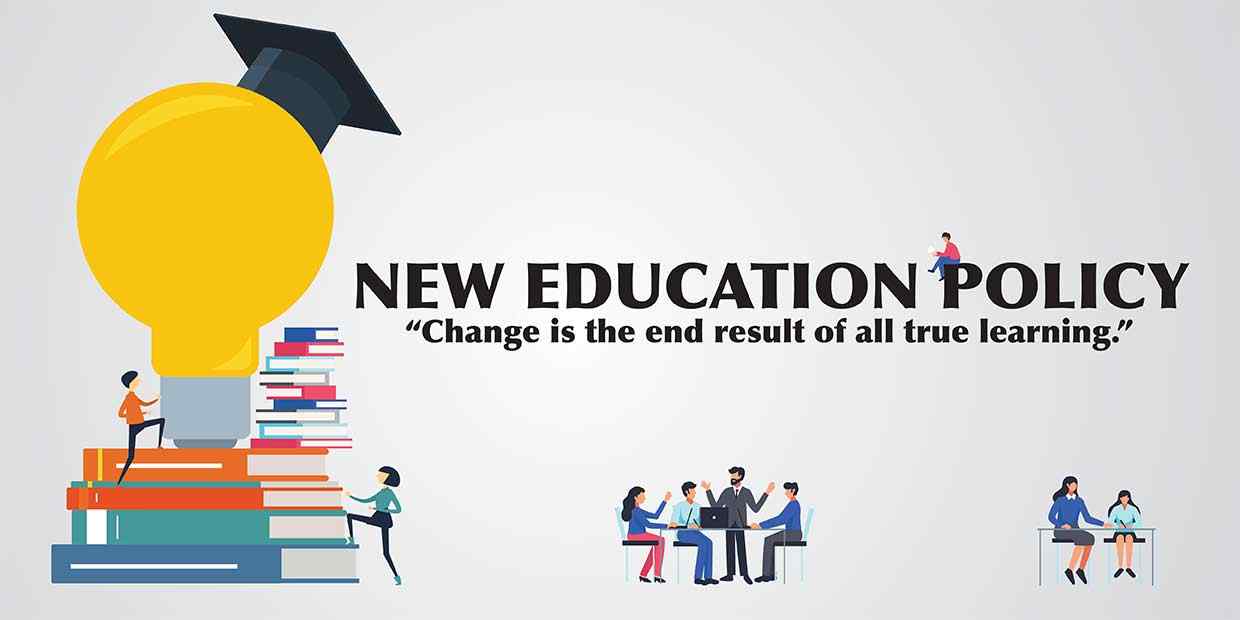National Education Policy
The Ministry of Human Resource Management recently modified its education policy, as you are all aware. Under the presidency of ISRO chief Dr. K Kasturirangan, this alteration was implemented. Through this article, we will present you with information about National Education Policy. With this, we will explain the aim of the National Education Policy as well as some of its characteristics. Through this essay, we will also inform you about changes in education policy.
National Education Policy Overview
The education policy in schools and colleges is being developed. In accordance with the National Education Policy. The Indian government has unveiled its new National Education Policy 2020. Under this administration, the government has made numerous significant changes to education policy. Through the new National Education Policy, India will become a worldwide knowledge giant. The Ministry of Human Resource Management has changed its name to the Ministry of Education. Previously, the 10+2 pattern was utilised, but today, under the new education strategy, the 5+3+3 pattern is used. The +4 pattern will be used. The Bharatiya Janata Party's 2014 general election manifesto featured this National Education Policy.
A live dashboard will be launched under the National Education Policy
From June 2021, a live dashboard will be available to track the effectiveness of the National Education Policy 2020. This dashboard will be used to keep track of the policy's implementation. This initiative will focus on making policy changes at the college and university level. The Ministry of Education has recognized 181 functions. Which must be completed by 2020 as part of the Education Policy. Subject options in undergraduate and postgraduate courses, regional language-based education, the ability to apply for and withdraw from university degrees, and a credit bank system are all examples of these projects.
| Article about |
National Education Policy 2022 |
| launched by |
Government of India |
| Beneficiary |
Citizen of India |
| Objective |
To universalize education and make India a global knowledge superpower. |
| Year |
2022 |
| Scheme available or not |
available |
National Education Policy Advisory
- In 1986, the National Policy on Education was developed, and in 1992, it was amended.
- This policy has been in place for more than three decades.
- With this in mind, the education sector created the National Education Policy 2020 to educate students for the expectations and needs of the twenty-first century.
- This education policy was developed through a collaborative process that took a holistic, inclusive, and participatory approach.
- Expert opinion, field experience, empirical research, stakeholder feedback, and other factors have all been considered.
- The revised education policy was submitted on the web after it was completed.
- Stakeholders' opinions, suggestions, and views, as well as the public's, were solicited.
- The Ministry of Government of India encouraged state and union territory governments, as well as the Ministry of Government of India, to submit their opinions and criticisms once the documents were posted on the portal.
- This policy was made available in 22 different languages.
- In addition, a meeting with education secretaries was held in this respect, and education dialogues were organized
- 26 education ministers from various states and union territories, state, and union territory representatives, CABE members, presidents of organizations, and university vice-chancellors attended the meeting.
- The government has implemented the National Education Policy 2020, which takes into account the suggestions of all of these stakeholders.
in many states.
- CABE also convened a special meeting on national education policy.
National Education Policy implementation process will be started soon
In the year 2020, the National Education Policy was launched. The administration will soon announce the blueprint for implementing the National Education Policy. After the policies of 1968 and 1986, this is the third. Many significant changes will occur in the educational system as a result of the new education policy, including the removal of old barriers between different streams of education, the provision of more educational materials to the next generation of students, and so on. In order to offer students with a better education. This education policy will last for the next two decades. The implementation of this education strategy will be phased in. In the month of September, a Shiksha Parv was held. During this Shiksha Parv, the execution of the National Education Policy was discussed. Through this Shiksha Parv, the Ministry got suggestions from 15 lakh stakeholders.
Objective of National Education Policy 2022
The National Education Policy's major goal is to raise the standard of education in India to that of the rest of the world. So that India might become a worldwide superpower in the field of knowledge. The National Education Policy will be used to achieve education universalization. Many changes to the existing education policy have been made by the government in the National Education Policy 2022. So that education quality improves and students have access to a good education.
Principles of Education Policy
- Identifying and developing the potential of each child.
- Children's literacy and numeracy skills should be developed.
- making education more adaptable
- putting money into a public education system
- Improve the quality of education.
- Children are being introduced to Indian culture.
- Researching at a very high level.
- Children should be taught and empowered about good governance.
- Transparency in education policy
- The use of technology as much as feasible is emphasised.
- Concentrate on the evaluation.
- Teaching a multitude of languages is one of my specialties.

Benefits of New Education Policy
- The implementation of the National Education Policy will cost 6% of GDP.
- In studies, students will have the option of learning Sanskrit and other ancient Indian languages. These languages are available for students to study if they so desire.
- Changes will be made to board exams as well. It's possible that board exams will be held twice a year to ease the pressure on students.
- To make studying easier, artificial intelligence technologies will be deployed.
- The MPhil degree is being phased out of higher education.
- Extracurricular activities will be incorporated into the core curriculum.
- Students will be taught three languages at their own level, as determined by the state.
- The National Council of Educational Research and Training will create the National Curriculum Framework for School Education.
- Many institutions will be developed to implement this new education strategy so that it can run properly.
- Children's education, as well as their talents, will be given significant priority under the new National Education Policy.
Read More Articles
Shubh Shakti Yojana 2022, Registration Process, Required Documents, Application Form, Benefits, Eligibility Criteria, Helpline Number



.webp)